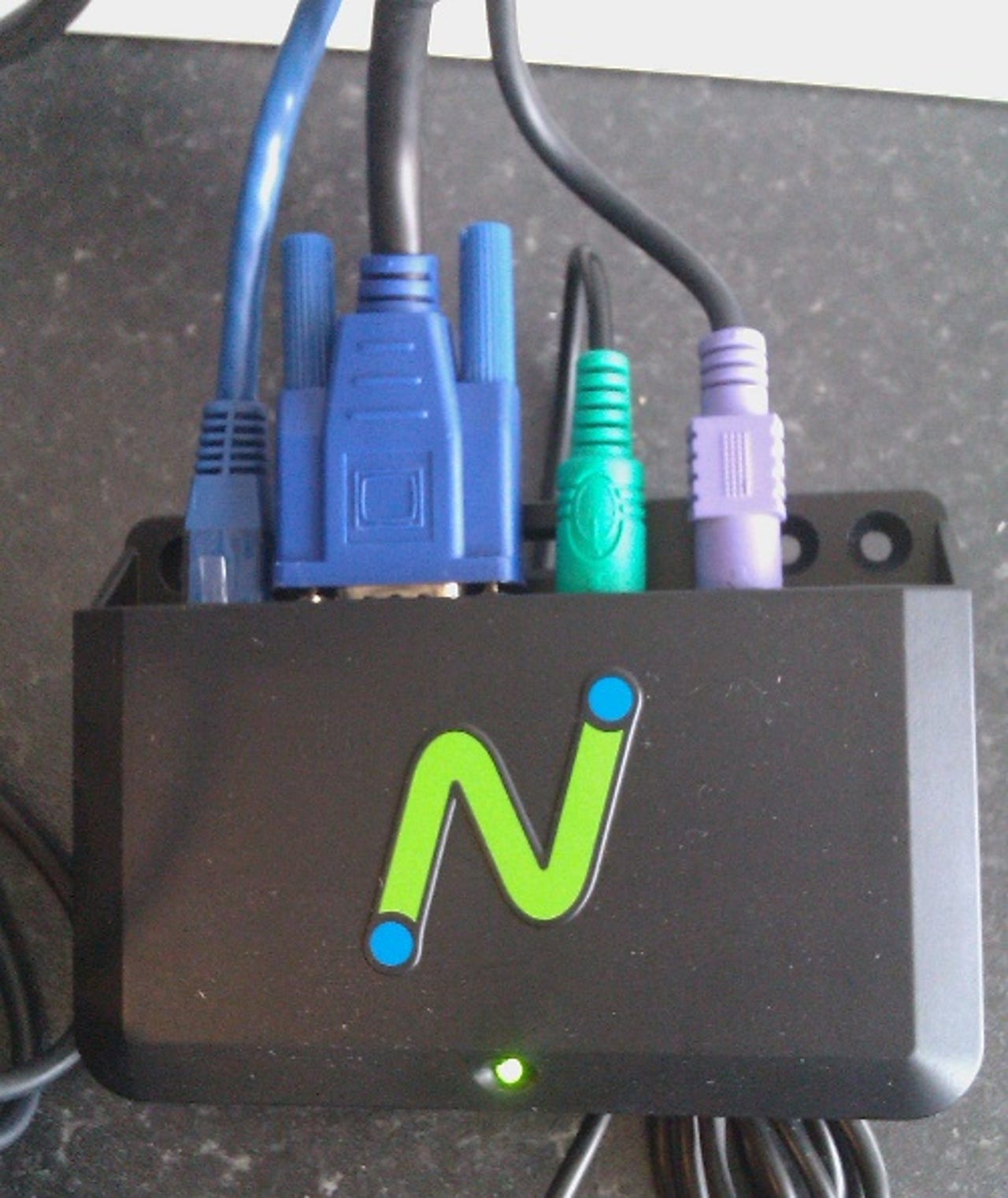Photos: The cyber café in a box

How Computer Aid International is aiming to help the developing world get more connected
This is one of Computer Aid International's cyber cafés in a shipping container which will soon be making its way to Kenya.
The charity, which has been reconditioning unwanted computer equipment to be sent off to developing countries since 1997, recently branched out to provide solar-powered cyber café's after spending several years researching how the concept could be made a reality.
The 20ft container is being sent to Computer Aid International partner, Computers for Schools Kenya (CFSK), which has received and distributed around 10,000 PCs from the charity to date.
silicon.com recently went to Computer Aid International's HQ in Arnos Grove, north London to take a look at the cyber café container before it was shipped off to Kenya.
Photo credit: Rob Tomkinson/silicon.com
The cyber café uses a Pentium 4-spec PC which acts as the hub for 10 thin client computers to run and access the internet. The cyber cafés are designed to be as plug-and-play as possible so they can be set up easily with little potential for the hardware to be installed incorrectly.
This particular cyber café will be located in Embakasi, a suburb of Nairobi, and used as a showcase for organisations from across Africa to visit and see it in action and how it could be of use to them.
The first cyber café container is currently on its way to a mission hospital in Zambia being used by John Hopkins University in Maryland, US to research malaria.
The location is 70km from the nearest paved road and is as "rural as it can get" according to Computer Aid International CEO, Tony Roberts. As a result it will use a satellite network to access the internet.
Once the cyber café is in place the plan is to use it to extend a mesh network that's already in place in the local area.
Photo credit: Rob Tomkinson/silicon.com

The cyber café uses thin client devices manufactured by NComputing to access the processing power of the main PC.
In areas where there is 3G signal or wi-fi, the cyber café can connect to the internet using these networks. Satellite connectivity, is extremely expensive, so these cheaper methods will be preferred in urban areas where they will be more prevalent.
Embakasi has 3G coverage, so the PC and thin clients will connect to the internet via a 3G dongle attached to the main PC. There may also be the possibility of linking to wi-fi networks in the area.
Photo credit: Rob Tomkinson/silicon.com
The thin client PCs in the cyber café containers run on Windows XP SP2 and SP3. Potential uses for the cyber café containers include students accessing the internet for research, farmers checking produce prices and hospitals connecting to patient information or medical expertise.
Photo credit: Tim Ferguson/silicon.com
The cyber café is powered by six solar arrays which supply more than enough power to keep the computers running over a 12-hour day, the predicted level of usage.
Any excess energy can be stored in the battery and used to charge other devices such as mobile phones, which are becoming increasingly commonplace in the developing world.
This particular container is a deluxe version. The economy version has just three solar arrays, which are still enough to power the cyber café for predicted levels of use especially in sunnier regions.
Photo credit: Rob Tomkinson/silicon.com
The solar panels are linked to a battery which is able to store any excess energy. The solar arrays should last around 25 years while the battery is good for around 10 years if used correctly.
Photo credit: Rob Tomkinson/silicon.com
As this container is a deluxe version, it includes wooden panel walls, cable protectors and benches for people to work at. The main PC is located in the corner on the right.
The deluxe cyber café currently costs Computer Aid International about £22,000 but the economy version should cost at least £5,000 less as local craftsmen where the container is located will fit out the container.
Photo credit: Tim Ferguson/silicon.com
Computer Aid International CEO, Tony Roberts, gives one of the thin client devices a spin.
The plan is to trial the cyber cafés for three to four months with a third container due to be sent to the Zambia. Once this initial phase has been completed, Computer Aid International will look at producing the cyber café containers in greater numbers.
Photo credit: Tim Ferguson/silicon.com
Computer Aid International's HQ includes a warehouse where unwanted computer equipment is delivered, processed and redistributed.
Computer equipment is donated by large businesses - such as Coca Cola, Sainsbury's and the Virgin group - public sector organisations, such as councils, schools and universities and even private individuals.
Around 170,000 computers have been redistributed to more than 100 countries in the 13 years that Computer Aid International has been operating.
Photo credit: Rob Tomkinson/silicon.com
Each computer is wiped of all its data using software from Kroll Ontrack, which is approved by the US Department of Defense.
Up to 30 computers can be cleared of data simultaneously, taking between 20 minutes and one hour to be fully wiped.
Photo credit: Rob Tomkinson/silicon.com
A pallet of CRT monitors waits to be shipped off to Kenya. The extra space in the cyber café container will be filled with 100 PCs (and spare parts) which can be distributed to local community.
Photo credit: Rob Tomkinson/silicon.com